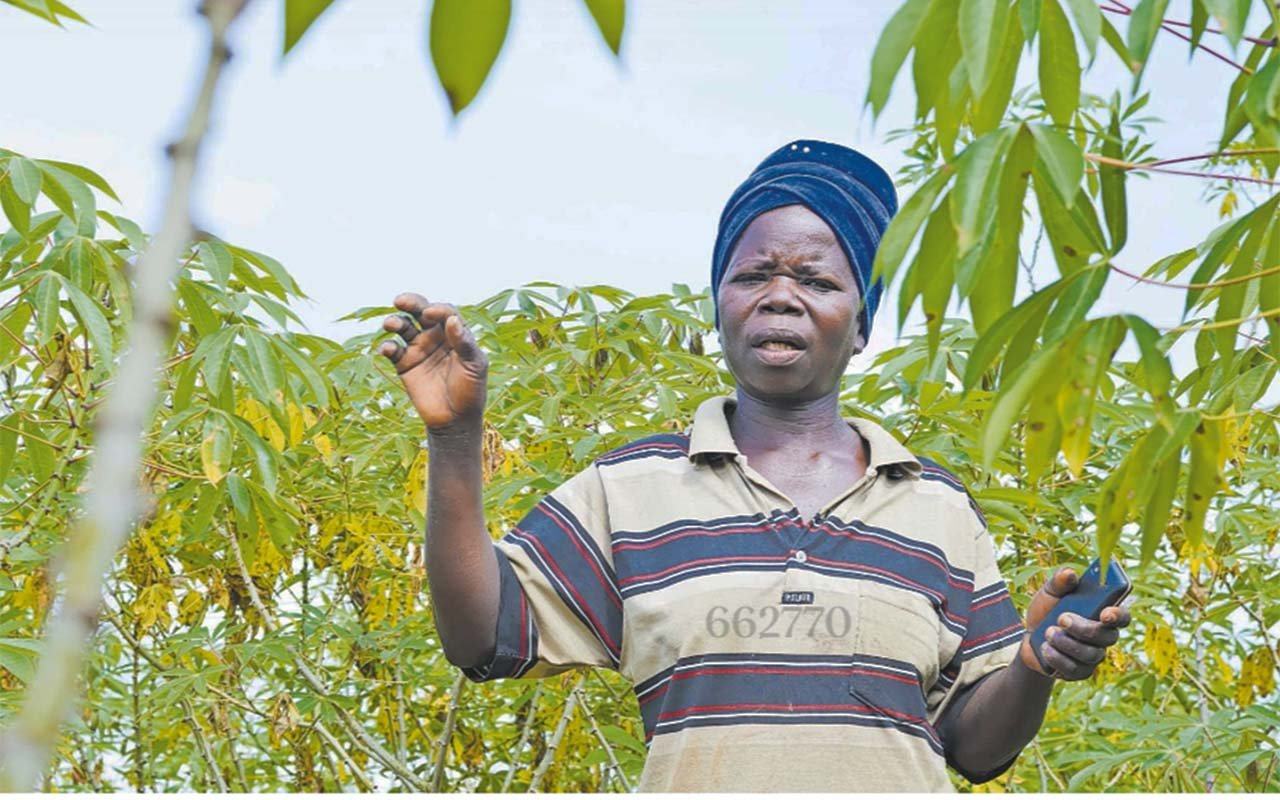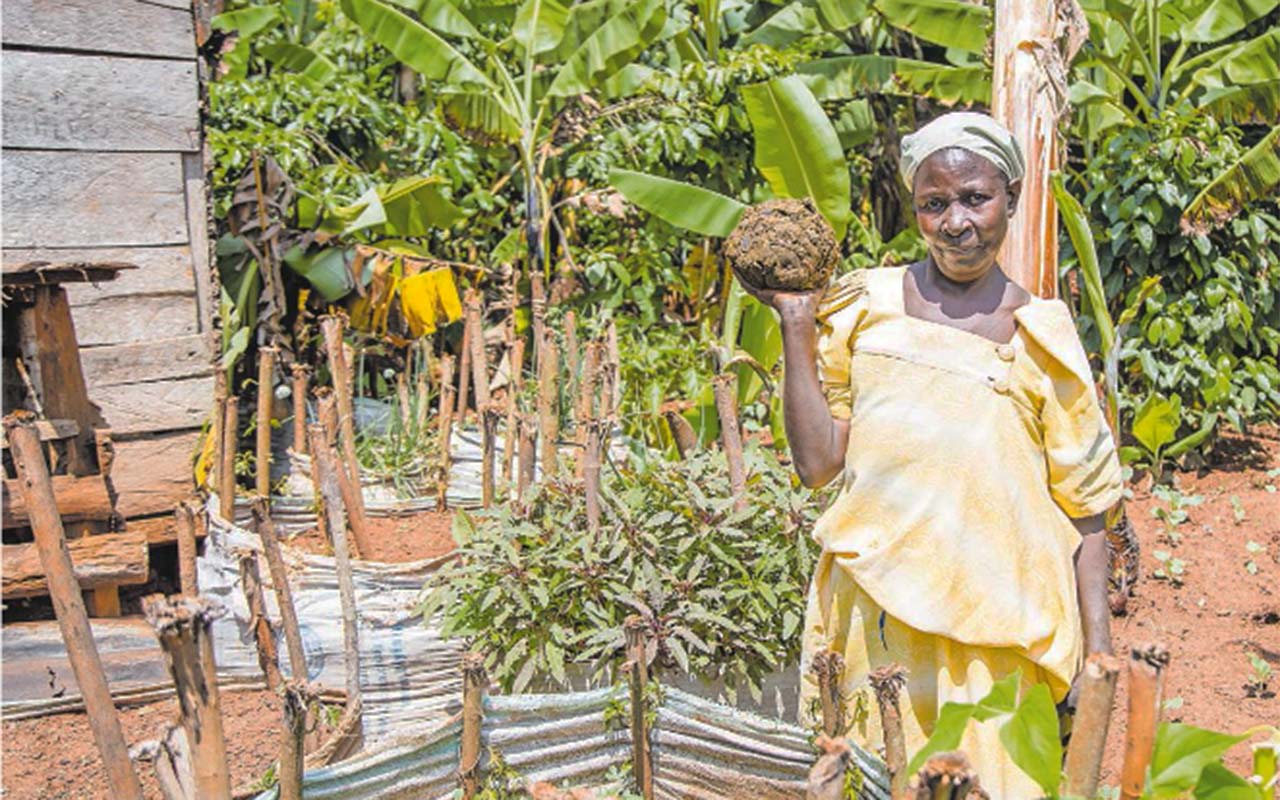Improve food security by eliminating trade barriers - Tumwebaze

Agriculture minister Frank Tumwebaze speaks at the three-day Annual Meeting of the Multidisciplinary Team of the Food and Agricultural Organisation of the United Nations (FAO) Sub-regional Office for Eastern Africa at Speke Resort Munyonyo recently. PHOTO | TREVOR LUTALO
What you need to know:
- Mr Tumwebaze emphasised the need to eliminate trade barriers and address challenges in food distribution.
Ahead of the African Union Heads of State and Government Extraordinary Summit scheduled for January 2025 in Kampala, Uganda’s Agriculture minister has expressed optimism about Africa’s potential to achieve food security through increased intra-continental trade and investment in agricultural value chains.
Speaking at the three-day Annual Meeting of the Multidisciplinary Team of the Food and Agricultural Organisation of the United Nations (FAO) Sub-regional Office for Eastern Africa at Speke Resort Munyonyo, Minister Frank Tumwebaze emphasised the need to eliminate trade barriers and address challenges in food distribution.
He argued that these issues significantly contribute to food insecurity.
“Africa can attain self-sufficiency and ensure food security, but we must overcome the barriers to trade that prevent the movement of food from surplus to deficit areas,” Minister Tumwebaze stated.
The Agriculture minister pointed out that while Uganda enjoys food security, other regions, especially semi-arid areas, like Karamoja, continue to face hunger due to inadequate infrastructure and logistical challenges
He noted that goods from Europe can often reach the Democratic Republic of Congo more cheaply than Ugandan goods can reach the same market, a situation largely due to Africa’s underdeveloped trade infrastructure.
“One of the reasons for food insecurity is the failure to properly distribute food across the continent,” Minister Tumwebaze explained. “If Africa were trading food among itself, we would not see these imbalances. We have surpluses in some regions and deficits in others, and the root cause is the lack of trade facilitation.”
He emphasised the importance of African governments investing more substantially in agricultural value chains, particularly in infrastructure, technology, and transport, to improve market access for farmers and enhance food distribution across borders.
Minister Tumwebaze also outlined Uganda's commitment to leading efforts for the validation of the Comprehensive African Agricultural Development Programme (CAADP) Strategy and Action Plan (2026-2035), which will be discussed and endorsed at the upcoming summit.
The new CAADP framework, set for validation at the summit, aims to address food insecurity affecting approximately 200 million vulnerable people across the continent.
The strategy builds on progress made under the preceding Maputo and Malabo Declarations, focusing on agricultural transformation, improving food systems, and fostering trade among African nations.
Mr Abebe Haile-Gabriel, the FAO assistant director-general and regional representative for Africa, on the sidelines of the meeting told Sunday Monitor that it is imperative to support smallholder farmers with seed and skills.
“Our focus is on smallholder farmers because they are the backbone of African agriculture, they face numerous challenges, including limited access to improved seeds, markets, and mechanisation. Without addressing these barriers, we will not achieve food security,” he noted.
Mr Haile-Gabriel further opined that smallholder farmers rely on savings from previous harvests as seeds for new seasons, which leads to declining productivity, especially when faced with challenges such as drought or floods.
He said FAO advocates for a holistic “transformation of Africa's agrifood systems—an efficient, resilient, and inclusive system, particularly for women and youth.”
“Agroecology is one approach we can adopt to enhance productivity while making the system more sustainable and resilient,” Haile-Gabriel noted, adding, “But the key is transforming the entire agricultural value chain to ensure farmers can produce enough for both subsistence and export.”
Minister Tumwebaze believes the summit will lead to actionable policies that will address the structural challenges hindering Africa’s agricultural potential.
“Uganda is food secure with the exception of semi-arid areas of Karamoja but which are also coming up, Karenge is highly promising with very good yields so if we can supplement them with irrigation, Karamoja will be able to feed themselves,” he said.
ISSUE
As of October 2024, nearly 30 million people in Eastern Africa were highly food insecure, with 14.6 million displaced or living as refugees, according to data shared by FAO




